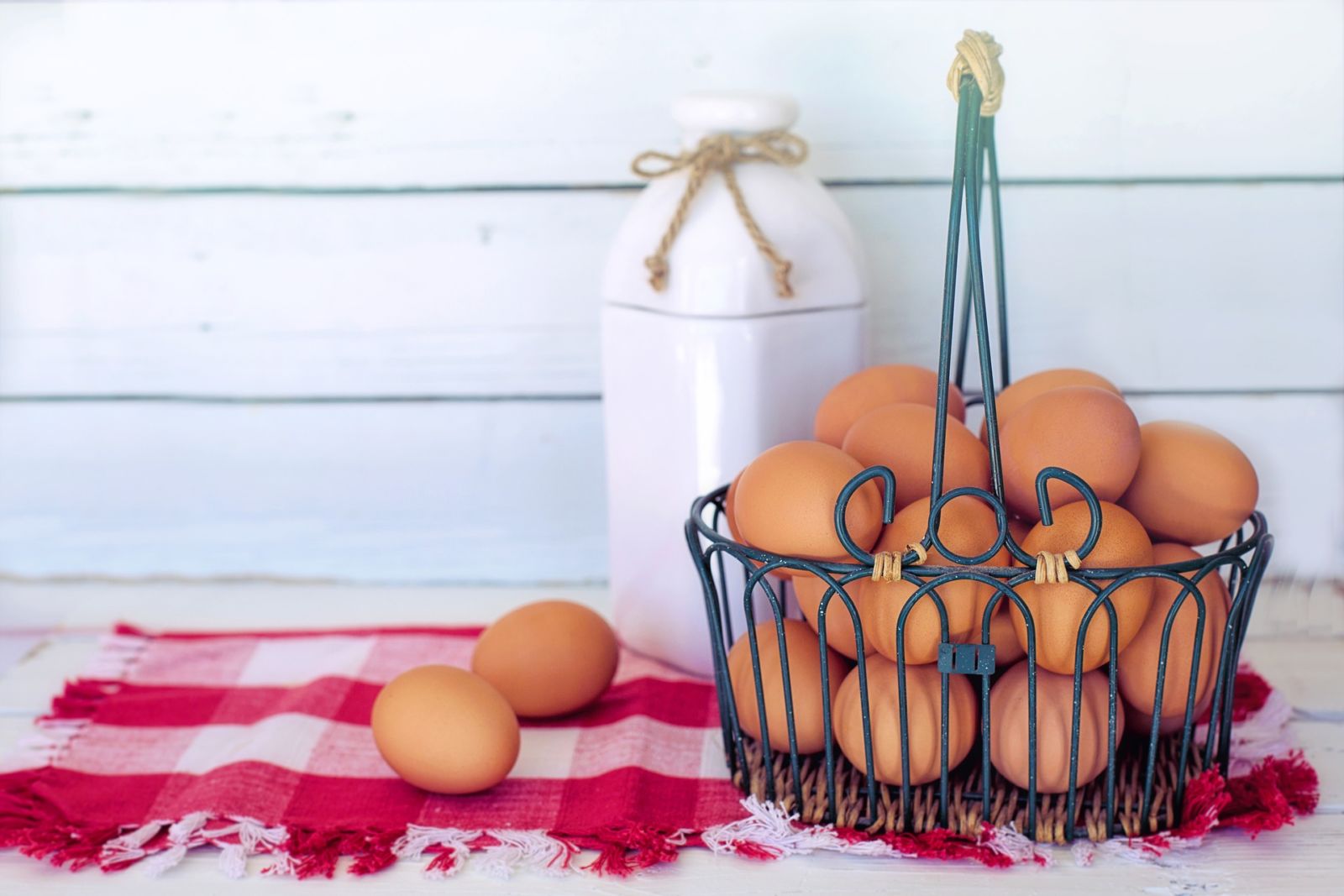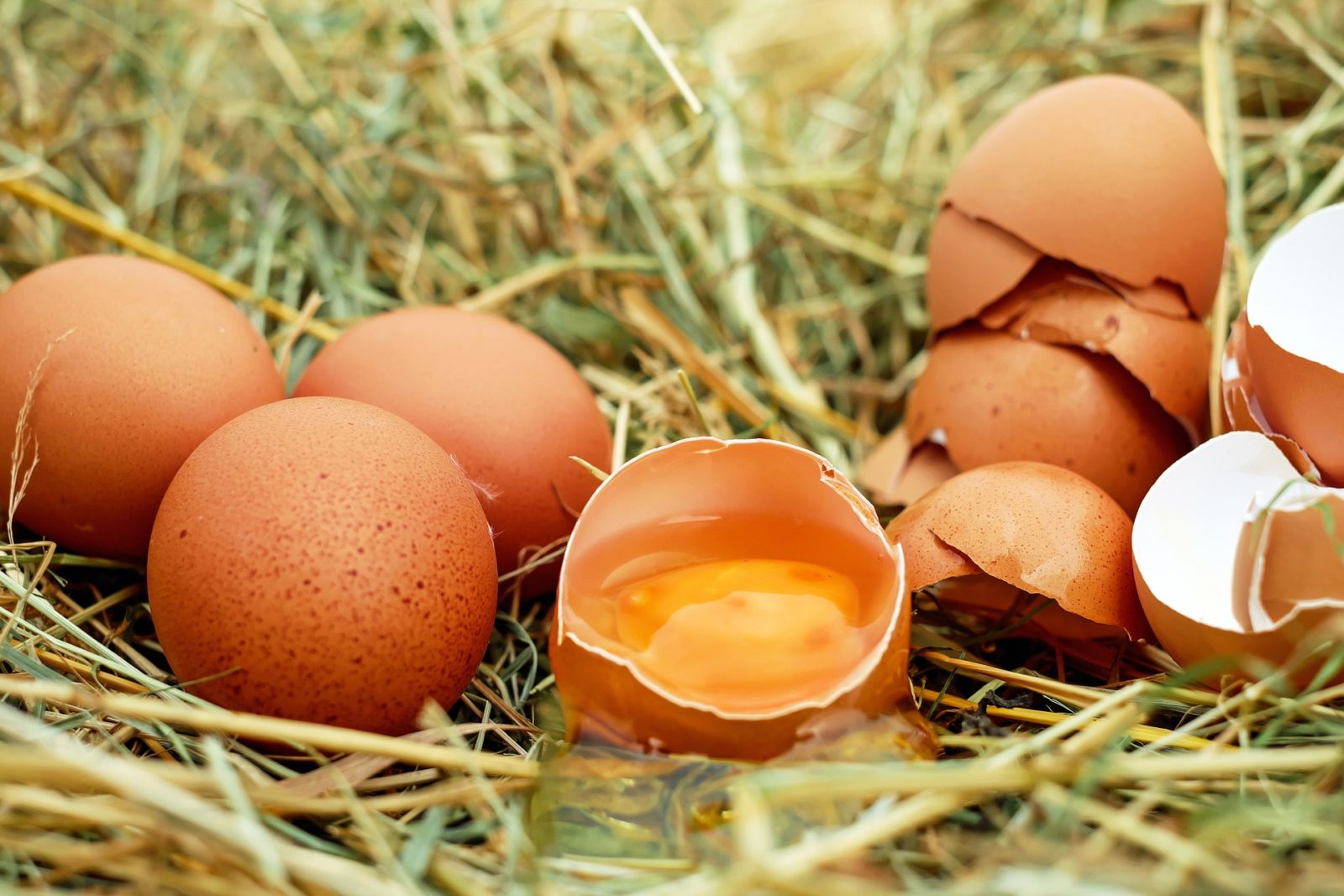Losing weight and eggs. Tip of the week 32

Losing weight and eggs: a good combo! Eggs are not only rich in protein, but also in vitamins (B2, B12, D, E) and minerals (iron, folic acid and choline). Nor is the egg a fattener. On average, a boiled egg contains about 80 to 90 Kcal.
However, the yolk of an egg contains about 200 mg of cholesterol (the white itself does not), while about 300 mg is permissible per day. Since we also get cholesterol through other foods (cheese, meat, deli meats), the same applies to eggs: eat them in moderation. Unless you remove the yolks.
Two to three eggs a week is absolutely responsible, and if you remove the yolks and/or don't eat meat or cheese even a little more.
That eggs are a good weight loss support is because muscle, in particular, speeds up the metabolism. Eggs are perfect for building muscle. The more muscle mass we grow, the more calories we burn, even at rest.
However, it is important that the eggs you eat are fresh, as old eggs can make you quite sick.
Consider salmonella poisoning, which you can contract from a bacterium that can be found in raw food. Salmonella bacteria originate from the animal's gut.
Salmonella bacteria are also sometimes present in raw meat such as filet Americain, Carpaccio, ox sausage or raw tartare, but can also be found in raw vegetables when they have been fertilised with the manure of an infected animal, or in mussels that have not been properly cooked and have been in contact with seagull excrement near the sea!
Old eggs
With contaminated eggs, the shell is especially a risk factor. The content of the egg is usually not contaminated, but when the contaminated shell comes into contact with the egg itself because of a crack in the shell or during peeling, you can get quite sick.
Sometimes the bacteria are actually inside the egg and were there in the chicken's body before the shell formed around it. This is sometimes possible when the bacteria entered the oviduct through the chicken's intestine.
The older the egg, the more salmonella bacteria it contains after any contamination. The first symptoms of Salmonella poisoning usually occur 12 to 36 hours after eating the contaminated food, and may include:
- nausea
- vomit
- abdominal cramps
- diarrhoea
- headache
- fever
- chills
The course of this infection is extremely unpleasant and can lead to the elderly, young children or people with reduced to low immunity (pregnant women, the chronically ill or diabetics):
- dehydration
- shock
- sepsis
- heart rhythm disturbances
Expiry date eggs
It is therefore important that you keep your eggs cool (salmonella bacteria do not grow well in the fridge), do not use them raw or soft-boiled after their best-before date, and heat them well before consumption. Cooking for six minutes eliminates the risk, but then your egg will also be pretty hard.
The best-before date shown on the box is the date the eggs were laid plus 28 days. If two weeks have passed after the best-before date, the eggs are six weeks old and it is better not to eat the eggs, even boiled or fried.
You can conveniently test the freshness of an egg when in doubt.
Place the egg in salt water. If the rounded side floats to the top, you are most likely dealing with an old egg.
Another way is to shake briefly. If you don't hear anything when you shake the egg back and forth, the egg is fresh. If you hear the egg sloshing inside, you better throw it away!
When breaking a fresh egg to fry it, the yolk will be nice and round and firm and the white will spill out little to no in the pan.
If the box states that the eggs come from the Netherlands, the chance of salmonella contamination is very small. (One in three thousand to five thousand!) Nevertheless, caution and hygiene are required. Prevention is better than cure!
This week you may also weigh yourself! Click >HERE for handy weighing and measuring tips.
The above text previously appeared in the Balance book. The book is now sold out, but may still be available to order second-hand via the link below.
Slimming blog >HOME


